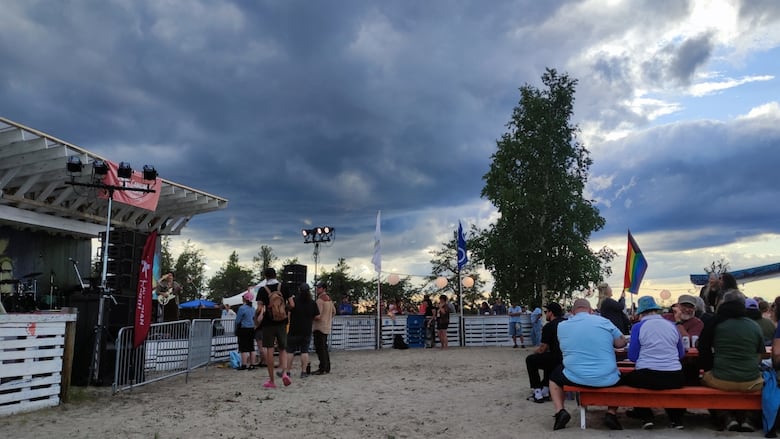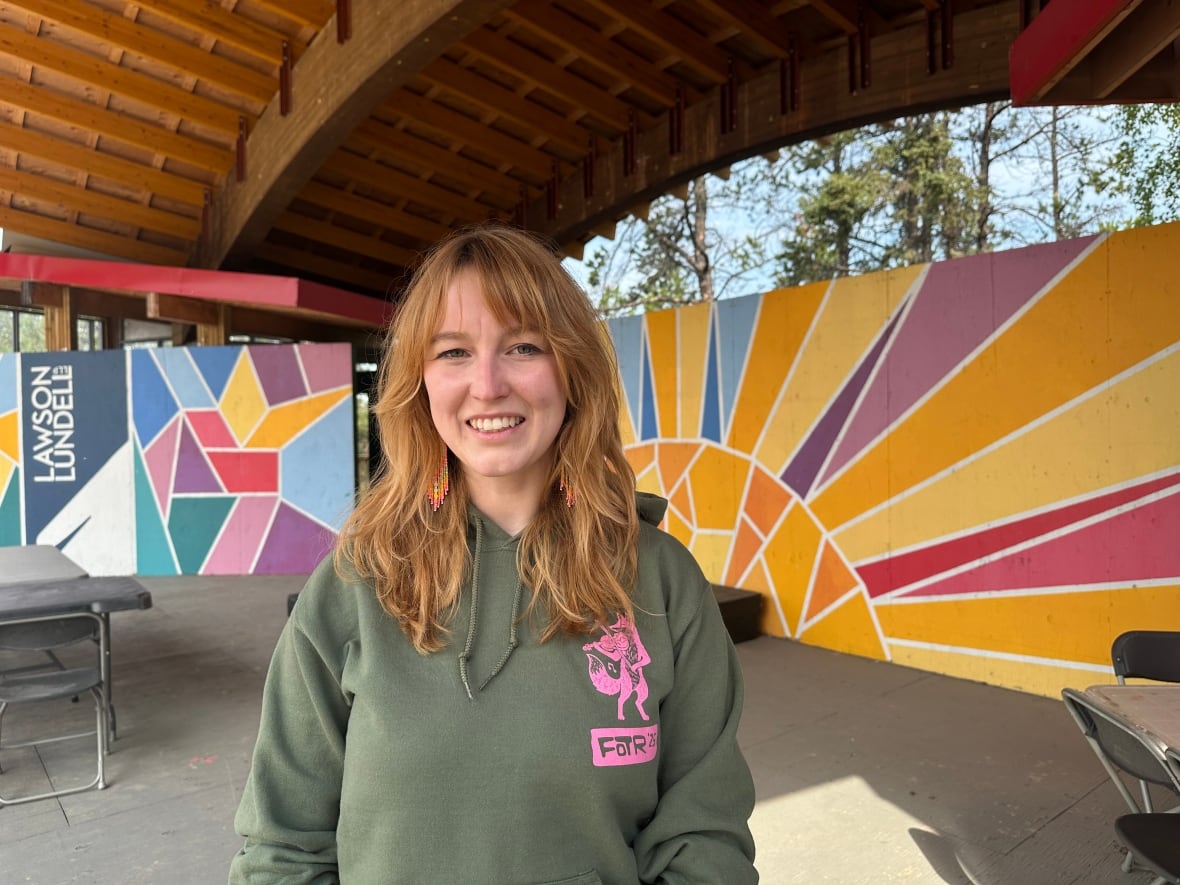Emergency plan 'worked great,' despite performer's encounter with lightning: Folk on the Rocks
Benji Straker says lightning struck the tent he was under and he got 'shocked pretty good'

Folk on the Rocks says its emergency response plan "worked great" after a thunderstorm forced the Yellowknife music festival to shut down early last Friday – and it has followed up with a local performer who had a scary experience with lightning.
"Lightning hit the tent and I got shocked pretty good," Benji Staker, who performs as Hughes, told CBC News on Saturday.
The annual three-day outdoor festival kicked off Friday with its Warm the Rocks event in the beer gardens at the Folk on the Rocks site. However, after the thunderstorm started, organizers made the decision to evacuate the site at around 8:30 p.m.
Straker said he and his wife and two others had sought refuge from the storm under a tent with sound equipment when it happened. He'd been leaning against a metal equipment box at the time, and said it felt like someone punched him in the head and kicked him in the butt.
"I felt fine right away," he said. "I think everybody else was kind of more concerned."
Straker said many people pulled him aside at the festival to ask him what happened and if he was OK. "I'm having fun with it," he said. "They're wondering why I'm not stuttering and why I don't have, like, a white stripe on my head or, like, spider veins."
"It's obviously nobody's fault. Maybe ours, for getting under a metal frame tent. But whatever, it is what it is."
Teresa Horosko, the festival's executive director, said in an interview Thursday that the festival has spoken with Straker about what happened.

"The static charge in the air when lightning is present is intense and it is possible to feel some shocks or some effects from that static charge," she said. "We've discussed that with him and also have opened up that conversation for anybody else who has been on site who may have felt some static charge."
Asked whether the festival's emergency response plan worked, given what happened, Horosko said it's something she's been asking herself too. "Did we do enough, and quickly enough? And I think, ultimately, yes."
Horosko said the festival had been monitoring the storm for a while and an evacuation didn't seem necessary at first. But then the wind changed, a low pressure system moved in, and things started to move quickly.
"I think back on that moment a lot. If I had done things a little bit different … would we not have had those instances? And I can't guarantee that those wouldn't have happened. Like static charge in the air is a big thing when there is an electrical storm. And I think ultimately we made the right choice when we made that choice."
Horosko said staff and volunteers did an "incredible job" clearing the site, and she's thankful to the audience for paying attention and being co-operative. Though she's satisfied with how the emergency response plan worked, she does hope to make some updates to it.
"It was our first time doing an evacuation because of a thunderstorm. So going to edit that a little bit and also have a more detailed re-opening plan."
The festival has described shutting down early on Friday as a "devastating financial loss." Horosko said the 19+ event brings in about a third of the festival's sales – through drinks at the beer garden and merchandise.
Though attendance on Saturday was "big," the cool Sunday forecast meant fewer attendees.
"We aren't out of the woods yet," said Horosko. She said the festival is planning some fundraising activities in the future.
With files from Jared Monkman

